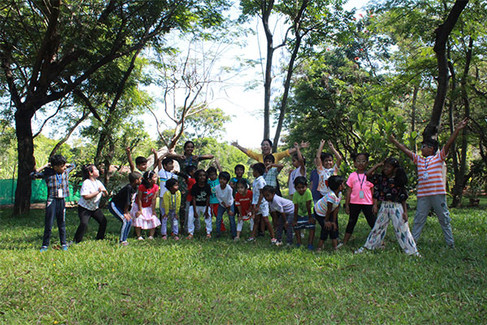Unhurried Childhood - III
- Pranitha P
- Apr 3
- 2 min read
Impact of holiday time spent online vs. time spent in nature on children
As the academic year draws to a close and the holidays approach, children have more free time, and how they spend it can significantly shape their well-being. While video games and online activities can offer potential benefits, such as improved reflexes, reaction time, hand-eye coordination, and even enhanced divergent thinking, it is important to consider the time spent online, especially without supervision, will have unintended consequences.
Prolonged online engagement may expose children to inappropriate content or even engage with strangers in ways that aren’t ideal, reduce meaningful social interactions, and even create emotional detachment. The immersive nature of digital worlds can sometimes lead to isolation, making children more susceptible to anxiety, frustration, and even online dangers.
In contrast, time spent in nature nurtures both the mind and body. If we encourage our children to plant a seed, tend to a garden, or simply explore the outdoors, it would foster patience and a sense of responsibility towards other living beings within them, and help them establish a deeper connection with the world around them. Unlike fleeting digital rewards, these experiences provide lasting benefits-enhancing emotional well-being, boosting social skills, and strengthening family bonds.
The question then arises: Should holiday time be spent online or out in the nature? While allowing our children to spend time in front of screens may be the easier choice, investing time in shared outdoor activities creates meaningful memories and contribute towards long-term personal growth. When children see that their parents prioritise quality time over convenience, they feel valued, secure, and emotionally fulfilled.
By choosing nature over excessive screen time, we create a safe space for them to blossom when we take the time to plant a seed and nurture a sapling, we provide our children with a foundation for healthier habits, emotional resilience, and a sense of belonging—not just to a virtual space, but to the real, vibrant world around them turning them into sustainable citizens capable of creating a green future.















Comments